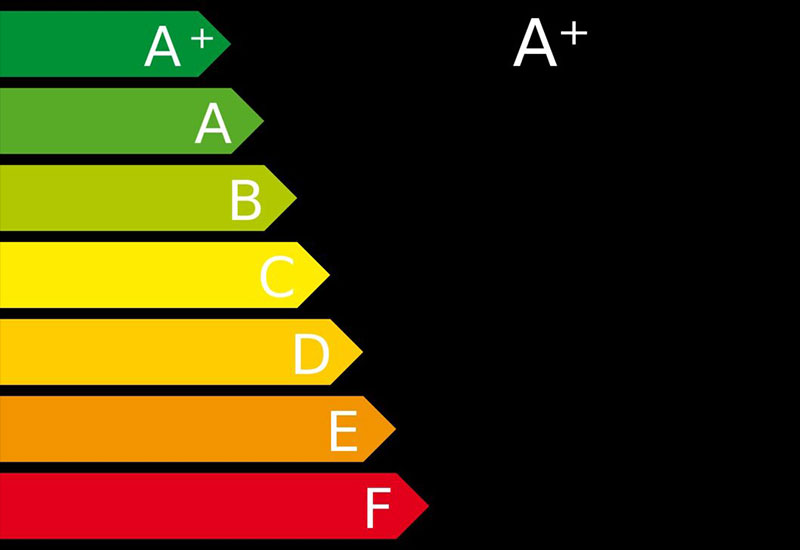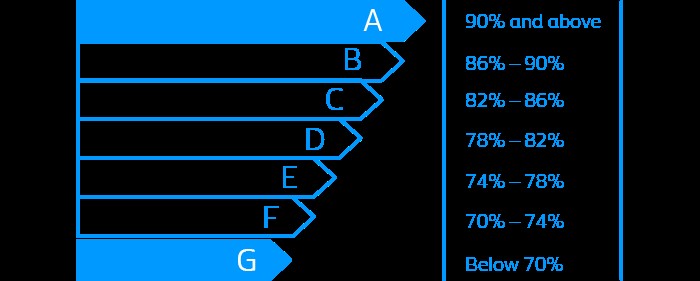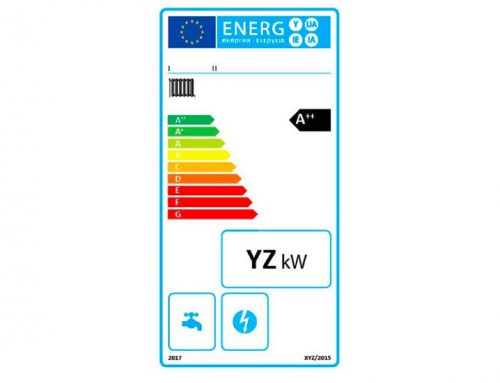Do you know how efficient your boiler is? It may feel like a bit of a boring subject, but when you consider that heating your home makes up approximately 60% of your total spend on energy bills, it’s definitely one worth thinking about. An energy efficient boiler can have a positive impact on both your bank balance and the environment, so even if you can’t afford a new one you should take the necessary steps to make sure your current one is running at peak performance. Here are some tips on how to find out how efficient your boiler is, and what you can do to improve it.
How do I find out how Efficient my Boiler is?
If you have a careful look at the boiler itself you should find a sticker on it. If the sticker isn’t there, it should be with the instructions and manual you received with the boiler. There are several different systems in use, based on different calculations. However, it isn’t as complicated as it sounds and each system is easy to understand.
ErP Energy Rating
‘ErP’ stands for ‘energy related products’ and is a regulation that was introduced by the European Union in 2015. This rating ranks efficiency from A-G, and almost every modern gas boiler will have an ‘A’ rating, meaning it is highly efficient.

Source: Wikicommons
SEDBUK 2009
SEDBUK stands for ‘Seasonal Efficiency of a Domestic Boiler in the UK. It gives the boiler a percentage score which tells you how efficient it is.

Source: British Gas
SEDBUK 2005
This rating was introduced four years before SEDBUK 2009 and is generally found on older boilers. It rates boilers from A-G, like the ErP rating, ranging from 90% and above to 70% and below.
What do the Boiler Ratings mean?
Once you’ve found the rating, you need to know what it means. Boilers that have been recently manufactured will be in the high 80s or low 90s (A or B on the ErP rating), which means they are very efficient. If your boiler rating is below 85%, it is probably a non-condensing boiler and will be 15 years old or more. Non-condensing boilers waste energy in the form of hot gases escaping from the flue, which ultimately costs you money. The newer condensing models capture some of that energy and use it to heat water returning from the central heating system. This means that they don’t don’t need as much heat from the burner, making them more efficient to run and saving on your energy bills.
Nearly all modern boilers will have a high rating and therefore you won’t save money by getting a new one. However, if your boiler comes in below 85% (C and below on the ErP rating), you should consider switching to a newer model. Though the initial outlay may feel expensive, you will recoup the costs when it comes to paying your gas bill.
How can I Improve my Boiler’s Efficiency?
If you’re happy with your current boiler, or can’t afford to get a new one, there are some things you can do to make sure your existing system is performing at its peak. Treat your boiler as you would a car: it needs regular services and tweaks to keep it running as smoothly as possible. The following tips will help.
Arrange an annual service
Having your boiler serviced by an expert every year is an easy way to make sure it’s running both safely and efficiently. It will also make sure your boiler doesn’t seize up in winter, causing potentially expensive problems like frozen pipes, and will root out any minor problems before they develop into major ones.
Bleed your radiators
Bleeding radiators is an easy job once you know how to do it. Performing this minor maintenance task improves the efficiency of your radiators, meaning your home warms up faster, and should save some money on energy bills. To work out if your radiators need bleeding, turn on the heating and check if any take a long time to heat up or have noticeable cool spots.
Top up the pressure
If the pressure of your boiler drops it will make a real difference to the efficiency of your boiler or, if it drops far enough, stop it from working altogether. Check the gauge on your boiler. It should read around 1.5 bar if the pressure is correct.
Insulate your pipes
Also known as ‘lagging’, insulating your pipes means less heat is lost through them, water will be kept hotter for longer and your boiler won’t have to work so hard. They can be lagged with simple, easy-to-fit foam tubes which can be purchased at most DIY stores. Make sure you find out the size of your pipes before you go to buy them.
Get to know your heating controls
How you use your boiler can have a real impact on heating costs. There are various heating controls available, but ideally your set up should include a boiler thermostat, a timer or programmer, a room thermostat and thermostatic radiator valves. By getting to grips with these controls and using them properly, you could reduce your running costs significantly.
Use a power flush
If you’ve bled your radiators and they still aren’t getting hot, you may have a build up of dirt, rust, sludge and debris in your pipes. If the build up is sufficient, it can stop your boiler from being able to heat your home properly. A gas engineer can bring a power flushing unit which sends water through your central heating system at high speed, clearing blockages and enabling your boiler to work more efficiently.
Having a properly working boiler is important, for your bank balance and for the environment. By finding out how efficient your current boiler is, you can decide whether you need to get a new one or simply make the changes outlined above to ensure it’s working as well as possible. If you already have a new boiler, giving it a regular service and making sure it’s working as well as possible will save you money and ensure it lasts as long as possible.


